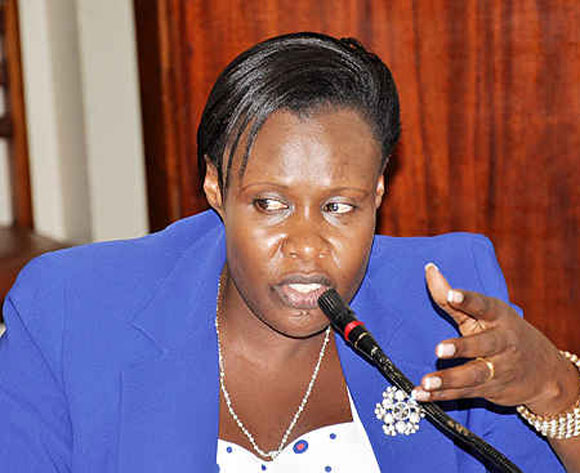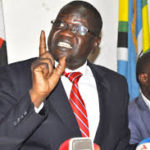
Some Ministers and Members of Parliament were voted out during the just-concluded National Resistance Movement (NRM) party primaries in the run-up to the 2016 presidential and parliamentary elections.
Going by recent reports, most of those who lost in the primaries have cried foul over how the elections were conducted and threatened to ditch the NRM and run as Independents.
But that is not a good way of ‘thanking’ the party that has put food at ones table for half a decade, and the losers should put that in perspective.
Of course it is the right of any Ugandan to choose whom to associate with, which means that the losing MPs are free to join any platform they feel will better serve for their interests.
But it is also their moral obligation to serve as guiding examples to other NRM party adherents by showing that one can lose gracefully and not disrupt party cohesionin the process. Indeed, they must be good Ambassadors of democracy, ready to show that they respect the party’s position on internal democracy no matter the circumstances.
There are about seven Ministers who were shown the door, representing about 10% of the entire Cabinet and prominent among them is Education and Sports Minister Jessica Alupo, State Minister for Foreign Affairs Regional Cooperation AsumanKiyingi and the State Minister for Economic Monitoring in the Office of the President Henry Banyenzaki.
Similarly, at Parliament level, a sizeable number of MPs lost their seats in what is seen as ‘punishment for failing to render the appropriate services’.
Never in the history of the NRM party have so many men and women serving in the Cabinet and Parliament been rejected like it was in the last primaries, leading many to speculate about thecapacity of those who lost to ably represent their constituents in the first place.
In fact it is just under five years ago that most of these politicians who lost were ‘elected’, and one wonders what they might have done or failed to do that has disenchanted the voters so much, so as to deny them their next Toyota Land Cruiser or Mitsubishi Pajero and billions in salaries and perks in the Tenth Parliament.
Well, there could be some tricky factors that occasioned certain MPs’ to lose, some of which can be attributed to the party’s Electoral Commission, but the peoples’ general perception is that most of the losing MPs woes boil down to lukewarm representation, the ‘poor delivery of services’ and the inequity some of them represent; ingredients that wrench the nerve-ends of the electorate.
That said however, and the electoral glitches notwithstanding, it is not a plausible option for the losers, who are very strong Movement cadres, to abandon the NRM party and run as Independents because in so doing they are actually telling the electorate that they were in the party for individual gain.
By their very nature elections are competitive and winners are determined by the people, basing on their assessment of the elected leaders’ capacity to deliver on the promises made and other challenges that affect the respective communities they seek to serve.
That is why all those that seek employment in the politics sector must strive to serve the people. They must also try as much as possible to put the interests of the party before the individual, a stance that creates cohesion, stability and sustainability of the ideological choices that the party stands for.
It is important to note that just before the elections, those seeking for electoral posts were asked to commit themselves to the party and I believe any right thinking party cadre should have made a choice then, either to abide by the rules set to create harmony or abandon the mission altogether.
Needless to mention, for any party or political organization to be able to enforce its ideological options in respect to service delivery, there is need for party cohesion and indeed that is whythe NRM Chairman President Yoweri Museveni and the party have reached out to the losers, encouraging them to stay the course and wait for a time when another chance abounds.
That way the party will be able to contain any electoral threats posed by the opposition.







